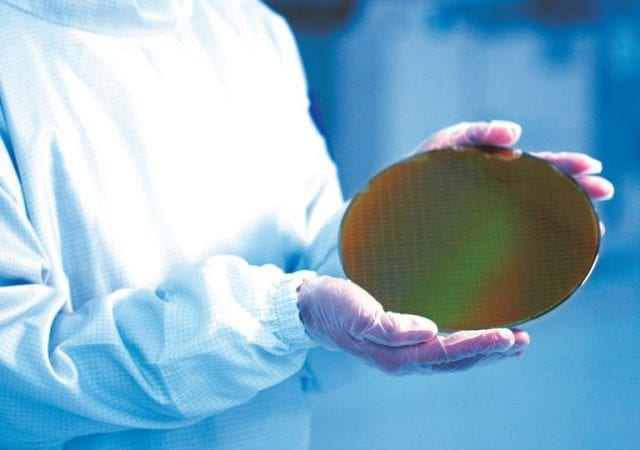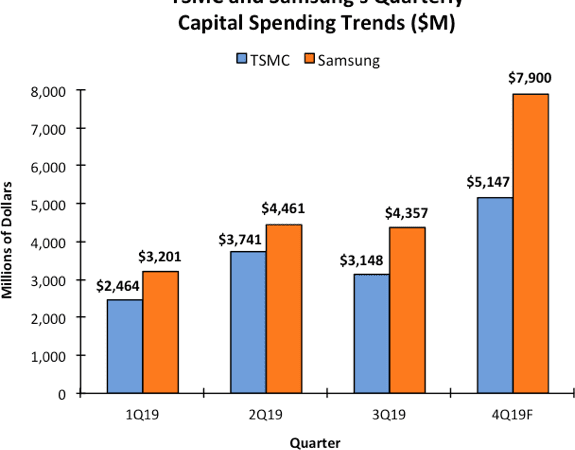A combination of megatrends, market demand, and new innovations has thrust many technologies into the spotlight. Lux Research – a leading provider of tech-enabled research and advisory services – released its annual report on the tech innovations that are likely to have the greatest impact during the next 10 years. The new report combines the power of insights from technology experts with proprietary data science tools to better guide innovation decision making. Lux’s “20 for 2020” identifies and ranks 20 technologies that will reshape the world, based on innovation interest scores from the Lux Intelligence Engine, along with input from Lux’s leading analysts. It provides data-backed context for the ever-shifting technology landscape and insights into how companies can maximize the investment opportunities these data trends reveal.
Professors from MIT, UCLA to be Honored for Excellence in Semiconductor Research
The Semiconductor Industry Association (SIA), in collaboration with the Semiconductor Research Corporation (SRC), today announced the winners of its 2019 University Research Awards.
National Labs, Georgia Tech, Collaborate on AI Research
The Georgia Institute of Technology, Sandia National Laboratories, and the Pacific Northwest National Laboratory are jointly launching a new research center to solve some of the most challenging problems in artificial intelligence (AI) today, thanks to $5.5 million in funding from the U.S. Department of Energy (DoE). The new co-design center, known as the Center for ARtificial Intelligence-focused Architectures and Algorithms (ARIAA), funded by DoE’s Office of Science, will promote collaboration between scientists at the three organizations as they develop core technologies important for the application of AI to DoE mission priorities, such as cybersecurity, electric grid resilience, graph analytics, and scientific simulations.
Top 5 Share of Semiconductor Industry Capex to Set New Record in 2019
IC Insights’ November Update to The McClean Report 2019 will include a capital spending forecast for the major semiconductor companies for 2019 and 2020.
Marvell Completes Acquisition of Avera Semi
Marvell (NASDAQ: MRVL) today announced that it has completed its acquisition of Avera Semiconductor, the Application Specific Integrated Circuit (ASIC) business of GLOBALFOUNDRIES. After working capital adjustments, the net deal consideration of approximately $600 million is being funded by a short-term bridge loan. By combining Marvell’s advanced technology platform and scale with Avera’s custom design capabilities, Marvell is now able to offer the complete spectrum of semiconductor solutions spanning 5G, data center, enterprise, and automotive applications.
Light-Based ‘Tractor Beam’ Assembles Materials at the Nanoscale
Modern construction is a precision endeavor. Builders must use components manufactured to meet specific standards — such as beams of a desired composition or rivets of a specific size. The building industry relies on manufacturers to create these components reliably and reproducibly in order to construct secure bridges and sound skyscrapers. Now imagine construction at a smaller scale — less than 1/100th the thickness of a piece of paper. This is the nanoscale. It is the scale at which scientists are working to develop potentially groundbreaking technologies in fields like quantum computing. It is also a scale where traditional fabrication methods simply will not work. Our standard tools, even miniaturized, are too bulky and too corrosive to reproducibly manufacture components at the nanoscale.
Renesas and Altair Semiconductor Announce Collaboration for Cellular IoT Solutions
Renesas Electronics Corporation (TSE:6723), a premier supplier of advanced semiconductor solutions, and Altair Semiconductor (altair-semi.com), a leading provider of cellular IoT chipsets, jointly announced a partnership aimed at bringing ultra-small and ultra-low-power cellular IoT solutions to the global IoT market. Cellular IoT device makers will be able to use this combination of best-in-class solutions to create highly differentiated IoT products and services that offer much greater efficiencies and faster time to market. These integrated solutions will be delivered through Renesas’ sales channels, enabling cellular connectivity to all of its markets.
MagnaChip Semiconductor CEO YJ Kim Awarded Korea’s Prestigious Industrial Service Medal
MagnaChip Semiconductor Corporation (“MagnaChip” or the “Company”) (NYSE: MX), a designer and manufacturer of analog and mixed-signal semiconductor products, announced today that CEO YJ Kim was awarded the Industrial Service Medal by the Korean Government in acknowledgement of his efforts to attract investment and encourage job development in Korea. The medal was presented today at the annual ‘Foreign Company Day’ ceremony hosted by the Korea Ministry of Industry, Trade and Energy, and the Korea Foreign Company Association (FORCA).
2D Antimony Holds Promise For Post-Silicon Electronics
Not everything is bigger in Texas — some things are really, really small. A group of engineers at The University of Texas at Austin may have found a new material for manufacturing even smaller computer chips that could replace silicon and help overcome one of the biggest challenges facing the tech industry in decades: the inevitable end of Moore’s Law. Researchers in the Cockrell School of Engineering are searching for other materials with semiconducting properties that could form the basis for an alternative chip. Yuanyue Liu, an assistant professor in the Walker Department of Mechanical Engineering and a member of UT’s Texas Materials Institute, may have found that material.
SEMI 3D & Systems Summit to Spotlight Latest in 3D Roadmap, Heterogeneous Integration and System-in-Package Technologies
Top experts in 3D integration and systems for semiconductor manufacturing will gather at the annual SEMI 3D & Systems Summit, 27-29 January, 2020, in Dresden, Germany, for the latest developments and insights in the 3D roadmap, heterogeneous integration and system-in-package technologies. 3D in packaging and transistor cell design is critical to scaling the performance of integrated circuits to meet the demands of artificial intelligence (AI), machine learning and other data-intensive applications. Registration is now open with early-bird pricing until 30 November, 2019.

